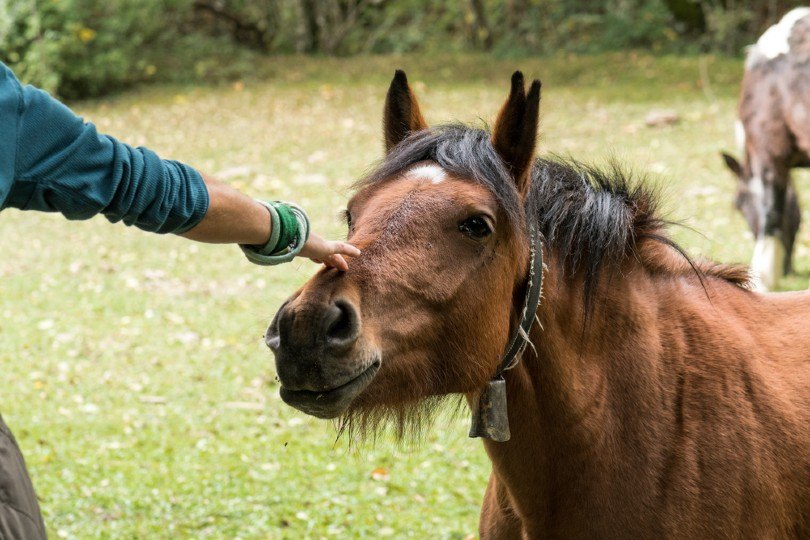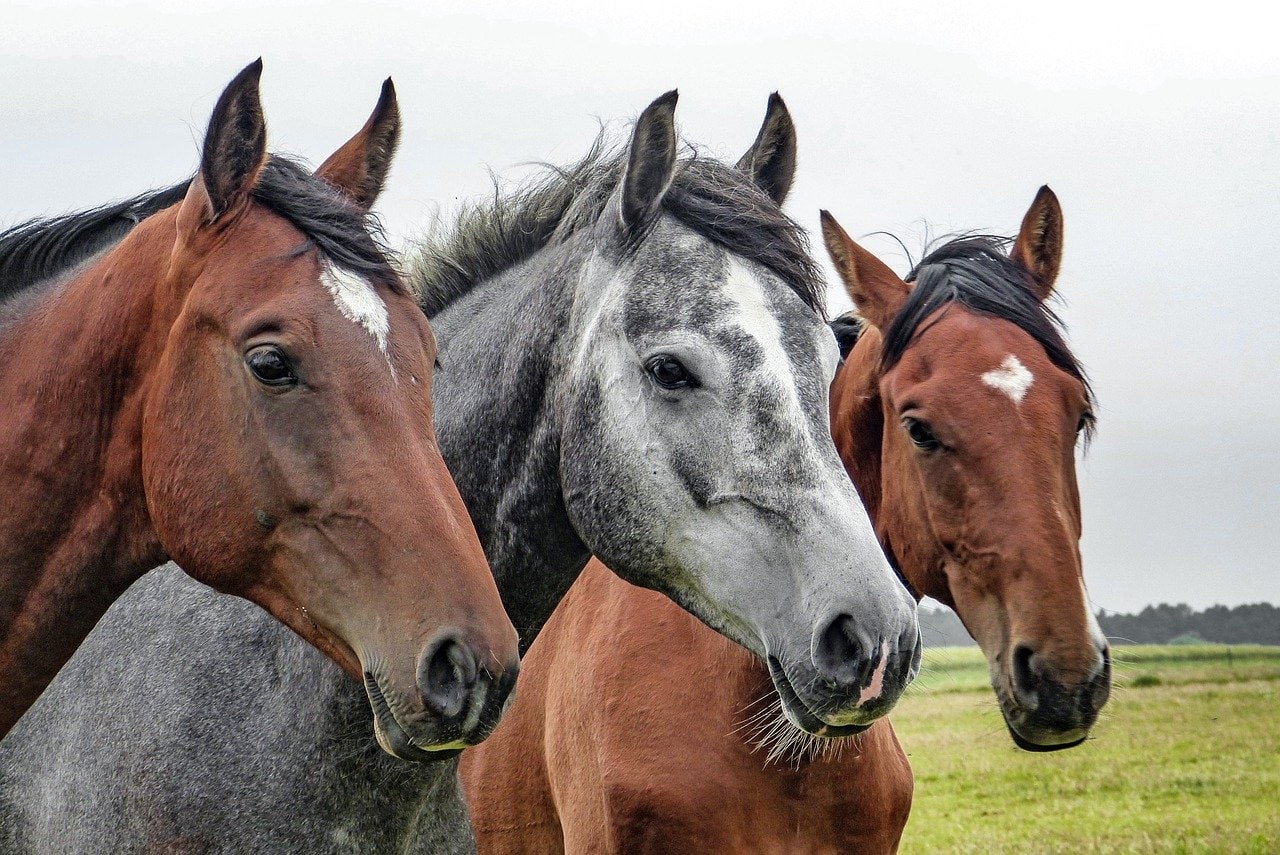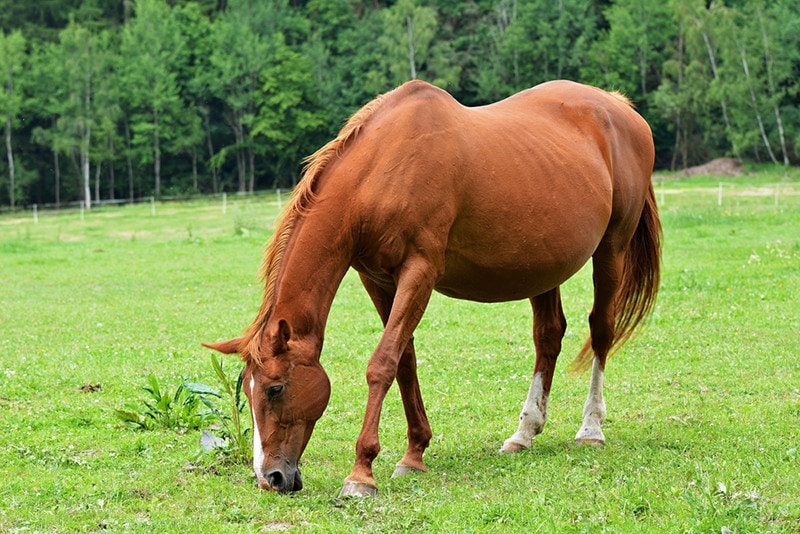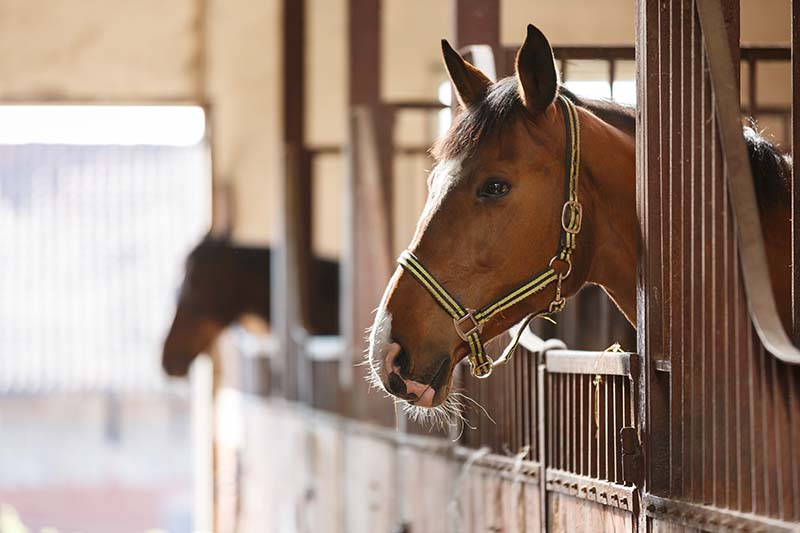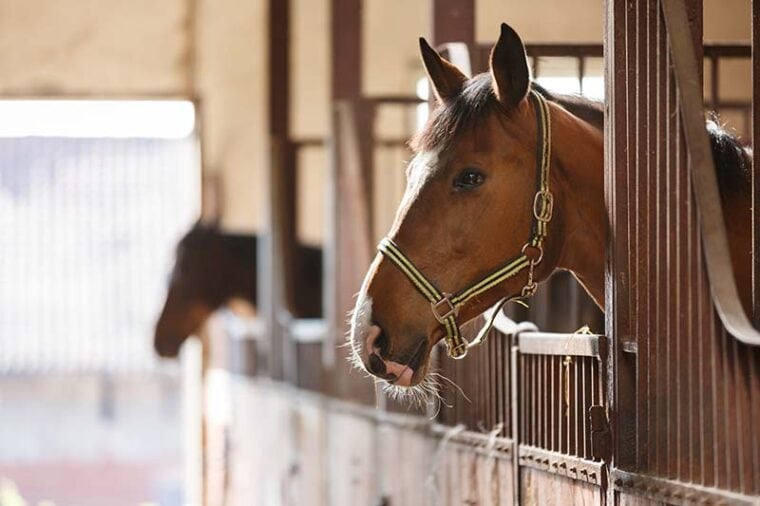
Horses are social animals and should not be left alone for extended periods of time. However, how long a horse can be left alone depends on several factors such as the individual horse’s temperament, age, health, and environment. It is important to consider these variables when determining how much time is appropriate to leave your horse unsupervised. Let’s learn more about how long horses can be left alone in this article.

How Long Can Horses Be Left Alone?
Horses that are fully grown can generally be left unsupervised overnight. However, they should never be left completely alone for more than 10–12 hours. After this time, they can start to feel lonely or isolated. If you have to be gone for longer than that, it’s a good idea to have someone come by to check on and spend time with your horses. Or, you temporarily board your horse somewhere if you have to go on vacation so that they can spend time with other horses and people.
The Factors That Affect How Long Horses Can Be Left Alone
Keep in mind that being left alone for 10–12 hours is an estimate for most horses. There are several factors that can affect how long a horse can actually be left alone, because it truly just depends on each individual horse. You know your horse better than anyone, so consider these factors when determining how long to leave them for.
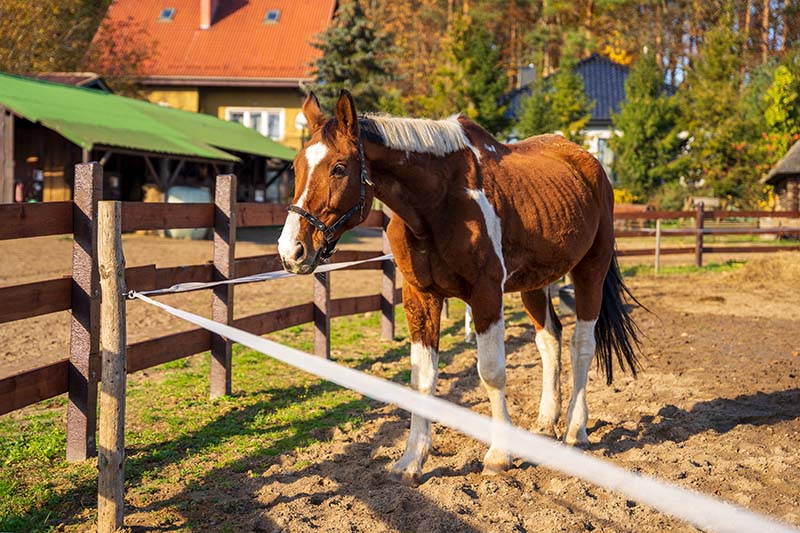
Health
A horse’s health can also play a role in how much time they should be left alone. Horses with medical conditions or special needs may require more frequent monitoring than those who are healthy. Additionally, if a horse is ill or injured they may not be able to cope with being on their own and need extra attention and care during these times.
Age
A horse’s age also plays an important role when determining how much time is appropriate for them to be left alone. It is generally recommended that young foals stay with their mothers until about 4 months of age to ensure proper emotional and physical development. During this time, it is important for the foal to be surrounded by other horses in order to prevent them from feeling isolated. However, as horses become adults, their need for social interaction decreases and they are able to handle being alone for longer periods.
Temperament
A horse’s individual temperament is a key factor that can determine how long they can be left alone. Horses with calm temperaments and who are used to regular routines may tolerate being left alone for longer periods than horses with more excitable or easily stressed personalities. Additionally, young or untrained horses tend to have less patience and may not be able to handle being alone for as long as older, better-trained horses.
Environment
In addition to the individual factors, the environment a horse is kept in can also determine how long they can remain unsupervised. Horses that are kept in confined areas such as stalls or small paddocks may not be able to cope with being left alone for very long due to lack of space and stimulation. On the other hand, horses that have access to large open pastures or fields can often stay alone for extended periods without becoming stressed or lonely.
Is It OK to Leave a Horse Alone Overnight?
Generally speaking, it is okay to leave a horse overnight, provided that you come back first thing in the morning. However, if it is necessary to leave a horse alone overnight, it is important to ensure that the horse’s environment is secure and comfortable. Additionally, it can be beneficial to provide a companion for horses who are not used to being alone or may become restless in their absence. This could include another horse, donkey, or even a goat or sheep as long as they get along well with each other.
How Can I Make Sure My Horse Stays Healthy When Left Alone?
It is important to provide your horse with a safe and secure environment that meets all of its needs. This includes making sure it has access to fresh water, food, shelter, exercise, and companionship if necessary. Additionally, providing toys or other forms of enrichment can help keep your horse entertained while it is alone.
What Does It Mean to Be Social Animals?
Horses are social animals, which means that they prefer to be in the company of at least one other horse. This is especially true for horses that live in groups such as those found in a herd. Horses like the companionship of their own kind and will often form close bonds with other horses within the herd. Additionally, horses may turn to another horse for comfort or protection if they feel scared or threatened by something in their environment.
What Horse Breeds Are the Most Independent?
There is no definitive answer as every horse has its unique personality. However, some breeds are known to be more independent than others. Breeds such as the Arabian and Mustang are often considered to be quite self-sufficient and less likely to need companionship to stay content. For advice on the best breed for your specific situation, it is best to consult an experienced equine professional.
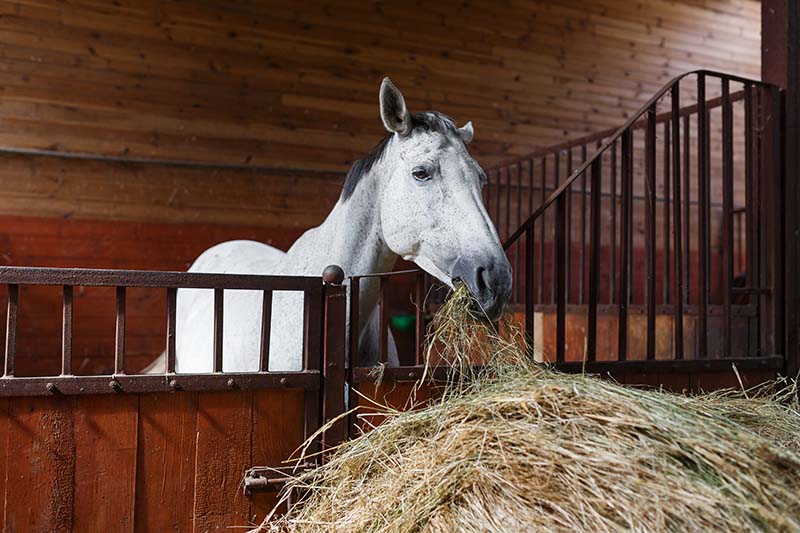
Should I Get More Than One Horse?
While it may seem like a good idea to get multiple horses, it is important to consider the individual horse and the environment they will be living in. Some horses may do better on their own or with just one other horse, while others may thrive in larger groups. It is best to consult an experienced equine professional for advice on what type of environment would suit your horse best.
What If My Horses Don’t Get Along?
It is important to introduce horses slowly and carefully to ensure that they get along. If one horse is aggressive or bullying, it may be best to separate them into different areas with plenty of space and time apart. Additionally, providing toys, treats, and other forms of enrichment can help keep them occupied during times when they are not together.
Finally, it is important to stay informed about the social needs of horses so you can provide them with the best environment possible. With proper care and attention, horses can live happy and healthy lives both in groups and on their own.
Is It OK to Leave My Horse Alone for Long Periods of Time?
It is generally not recommended to leave a horse alone for long periods of time. Horses need social interaction and companionship, so it is important to ensure that they are not left unattended for more than a few hours at a time. Additionally, older horses may require more frequent monitoring due to health issues or special needs. If you plan on leaving your horse alone for extended periods, it is best to consult an experienced equine professional for advice on how to make the experience as comfortable and stress-free as possible.
Can Horses Be Alone in a Trailer on Long Road Trips?
In most cases, it is not recommended to transport horses alone in a trailer. Horses can become stressed and anxious when they are away from their familiar environment and away from other horses. If you must transport your horse alone, it is best to make frequent stops so that the horse can have breaks from the noise and vibration of the road. Additionally, be sure to provide plenty of food, water, and rest for your horse during these trips.
What Should I Do If My Horse Starts Exhibiting Signs of Distress?
If your horse begins displaying signs of distress, such as pacing or coughing, it is important to seek professional help immediately. It could be due to health issues or other environmental factors that may require immediate attention. A veterinarian can provide a full examination and make sure your horse is in good health and comfortable in its environment. Additionally, an experienced equine professional can help you assess your horse’s needs and make sure it is getting the care it requires.

Summary
In conclusion, when determining how long a horse can be left alone it is important to consider its temperament, age, health, and environment. While calmer horses may tolerate being unsupervised for extended periods of time, others might need more frequent monitoring to ensure their well-being. Taking all these factors into account will help you determine the best amount of time for your horse to be left alone.
Featured Image Credit: Konstantin Tronin, Shutterstock


